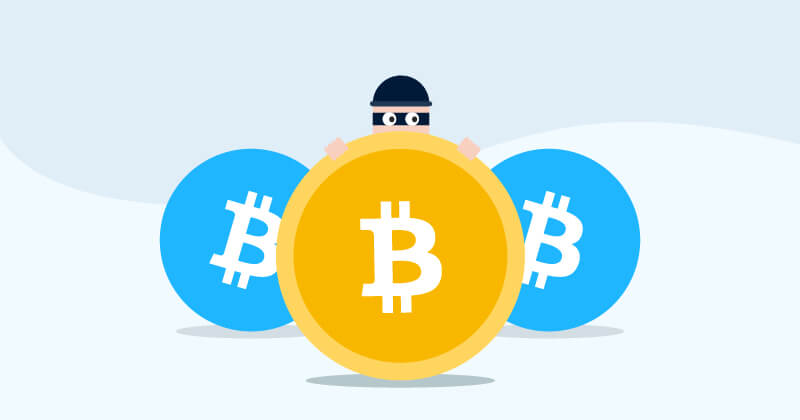Crypto tracing is the first step in every crypto recovery. Are you a victim of crypto scam looking to recover your lost crypto? Discover how to report your lost crypto for cryptocurrency tracing and how it leads to successful crypto recovery!
Professional crypto recovery experts and digital asset recovery specialists can trace all crypto funds that leave a mark in a ledger. Blockchain crypto tracing tools are becoming more sophisticated.
As the recent successful crypto recovery cases prove, thieves can no longer enjoy the proceeds of their crypto crimes.
What is Cryptocurrency Tracing?
Cryptocurrency tracing is a blockchain forensics tracking method used by specialists to decipher transactions on a pseudo-anonymous blockchain like Bitcoin’s.
The software experts use are becoming more capable, turning the limited information the ledger provides into a visual trail of illicit funds.
They may even identify the persons behind the transactions.
Cryptocurrency tracing and asset recovery specialists can also freeze and recover funds by partnering with law enforcement agencies. This becomes important in defeating crimes like:
- Online fraud
- Hacking
- Theft
- Phishing schemes
- Extortion
Cryptocurrency investigations aim to recover funds lost to crime and deception. And the end goal is always crypto asset recovery.
In order to achieve this, crypto recovery companies must have real-life investigation skills and be capable of effectively liaising with law enforcement worldwide.
The more advanced tools investigators use, the more likely they bring their tracing efforts to a successful conclusion.
Cryptocurrency Tracing Tools
Blockchain analysis tools are ingenious software solutions that allow investigators to peer into the transactions on the blockchain and make sense of them.
Eventually, these tools may even be able to match real-life entities to individual transactions and addresses.
What are the primary functions of a blockchain analysis tool?
- Transaction monitoring. Knowing the history of the funds, the money flow through an address, the origin of the funds, and other details can help investigators determine whether they are dealing with legitimate activity or fraud. It can also help them attach real-world identities to transactions and determine the likely intent behind them.
- Classifying addresses. Blockchain analysis tools classify addresses and establish connections with real-world people. Address classification is a basic step in crypto tracing, so tracing tools use several techniques to ensure they produce reliable, solid information in this respect.
- Visualization. Analysis tools compile the information they gather and deduce, into visually appealing graphs. Investigators can make connections based on these graphs and manually investigate the outstanding transactions.
Detailed Methods and Processes in Cryptocurrency Forensics
Cryptocurrency forensics employs various advanced methods and processes to trace, analyze, and recover stolen cryptocurrency or lost cryptocurrency. Each method is designed to unveil different aspects of the blockchain transactions, making it possible to identify criminal activities and recover stolen funds effectively. Here are the key methods and processes used in cryptocurrency forensics:
Attribution Data
Attribution data involves collecting and analyzing information that can link cryptocurrency transactions to various entities.
Transaction Mapping
Transaction mapping converts raw transactional data into visual maps and flowcharts, providing a clear and understandable representation of the flow of funds.
Cluster Analysis
Cluster analysis groups cryptocurrency addresses controlled by the same person or entity.
Crypto Recovery Process
If you believe you or someone you know may be a victim of a cryptocurrency scam, immediately submit a report to Broker Complaint Alert (BCA), providing as much transaction information as possible. Be wary of anyone claiming they can recover your funds as this may be another scam.
Reporting Crypto Scam for Successful Tracing and Recovery
The most important information you can provide are transaction details. Transaction details include cryptocurrency addresses, amount and type of cryptocurrency, date and time, and transaction ID (hash). These unique identifiers vary in length and look like long strings of random letters and numbers. Please see examples of important transaction details in the table below.
Transaction Details – For Example;
- Cryptocurrency Addresses: 0x58566904f57eac4E9EDd81BbC2f877865ECd35985
- Amount and Cryptocurrency Type: 1.02345 ether
- Dates/Times: 1 January 2023, 12:01 AM EST
- Transaction ID (hash): 0xfa485de419011ceefdd3cd00a4ff64e52bf9a0dfa528e4fff8bb4c9c
If you are unsure whether transaction information you have is relevant, please include it.
How Should I Report Crypto Scam?
Go to brokercomplaintalert.com and click on “Report a Scam“.
What Other Information Should I Provide to Recover My Cryptocurrency?
Provide any other information you may have about the scam, to include:
- Where and how you first encountered the scammer.
- Your communications with the scammer (for example, emails or texts) and associated identifiers such as names, e-mail addresses, and phone numbers.
- What domain names, website addresses, or applications the scammer instructed you to use.
- Any two-factor authentication or “one time passcode” information.
- Which cryptocurrency exchanges you used to send or receive funds.
- The timeline of the scam.
What If I Do Not Have Transaction Information?
If you do not have transaction information, please still submit a report to Broker Complaint Alert (BCA) and provide as much information as you have.
Crypto Tracing and Recovery Services to Successfully Recover Lost Assets
Cryptocurrency tracing may be an emerging industry, but it is already highly capable. Expert teams can gain access and track down assets worldwide. This helps to identify perpetrators, freeze accounts, and seize the proceeds of crimes. Crypto crooks can no longer enjoy the fruits of their devious activities.
Broker Complaint Alert (BCA) specializes in cryptocurrency forensics and asset tracing. We conduct investigations for law firms, investors, exchanges, regulators, and law enforcement. Every investigation is led by a Cryptocurrency Tracing Certified Examiner (CTCE) and Certified Fraud Examiner (CFE).
Broker Complaint Alert (BCA) offers free consultations to determine whether the Asset Tracing, Recovery Assistance, and Intelligence Services are appropriate for your case.








